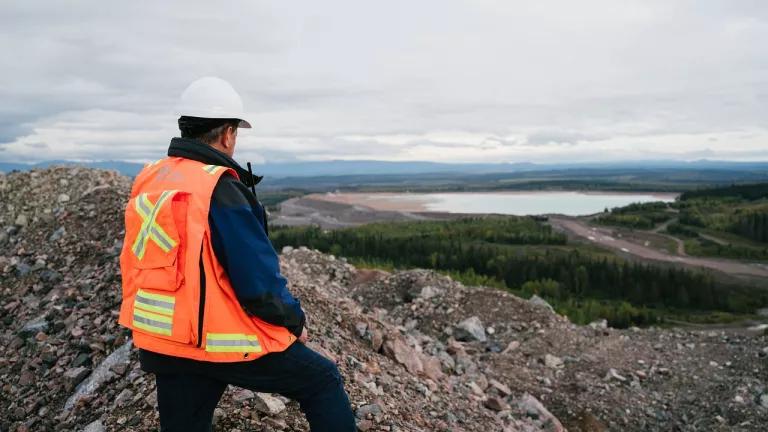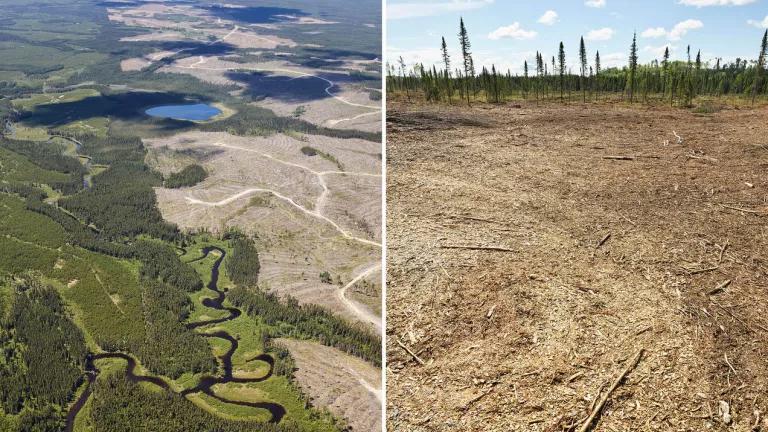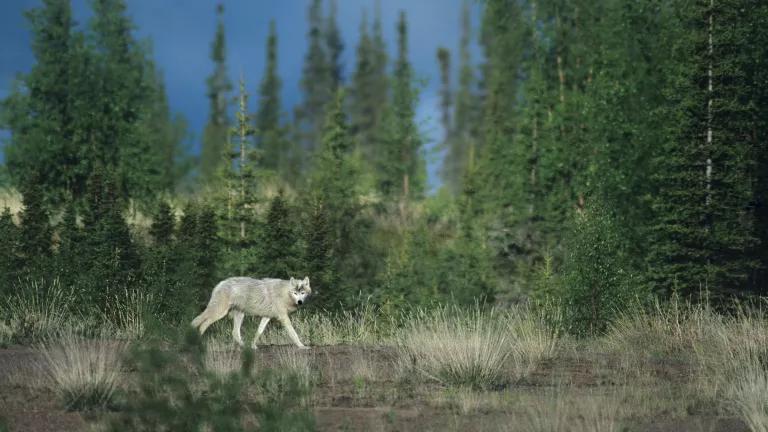Pebble Foes Run Ads Remembering the Mount Polley Disaster
Four years ago this month, a major breach occurred in an earthen dam built to contain millions of tons of mining waste at Imperial Metals’ Mount Polley copper and gold mine in British Columbia. It remains the worst environmental mining disaster in Canadian history.

A field biologist looking out over the Mount Polley remediation site
Pixabay
Four years ago this month, Canada suffered the worst environmental mining disaster in its history.
An earthen dam at Imperial Metals’ gold and copper Mount Polley mine in British Columbia gave way, spilling billions of gallons of mining waste. Mining companies had promised it would never happen. That a modern mine—with advanced technology and rigorous permitting requirements—could somehow be engineered to withstand the inherent dangers of mining in perpetuity.
But modern mines can and do fail. This one failed after only 17 years.
And that’s why tribes, business leaders, fishermen and conservation groups in Bristol Bay, Alaska vow never to forget Mount Polley. They want people to understand the scope of what could happen if the proposed Pebble Mine is built at the headwaters of Bristol Bay’s prolific salmon runs.
United Tribes of Bristol Bay ran this powerful coalition ad over the weekend in Anchorage and Juneau:
The full-page ad highlights the hollow promises mining companies make—that they can somehow engineer a “safe” mine.
Just one year before the breach, Knight-Piesold—the designer of the failed Mount Polley tailings dam—praised its own engineering design for the Pebble Mine:
“Modern dam design technologies are based on proven scientific/engineering principles, and there is no basis for asserting that they will not stand the test of time.”
“I apologize for what happened. If you asked me two weeks ago if this could have happened, I would have said it couldn’t,” said Brian Kynoch, the President of Imperial Metals after the Mount Polley disaster in 2014.
The designer of the failed dam—Knight-Piesold—is currently consulting on Pebble Mine.
Tom Collier, the CEO of the Pebble Limited Partnership, claims that “our engineers are convinced that there will never be a failure at Pebble.”
Think of what a Pebble Mine disaster would do to Bristol Bay—its indigenous communities who rely on subsistence fishing, its $1.5 billion annual commercial fishery that supports 14,000 jobs, and the people, businesses, and wildlife that rely on the prolific salmon runs.
Four years later, “[t]he vast quantities of mine waste that flowed into Quesnel Lake remain there to this day and for that reason many of us living on the lake refuse to fish or drink the water,” wrote Christine McLean with Concerned Citizens of Quesnel Lake in a recent op-ed.
Jacinda Mack, member of the Xat’sull (Soda Creek) First Nation, is an outspoken critic of mining. She is wary of the “polished story mining companies often bring to rural towns hungry for jobs and economic activity.”
Mack vividly remembers Mount Polley:
“It was a shock. All the communities around there when that happened had an emergency meeting. People were crying and talking about it like there had been a death. We did a ceremony there on the banks of the Quesnel River in Likely. We did a ceremony you do in a time of grief, of great loss and that’s exactly how our communities were all feeling.
There was this fear of the future … this grieving of the salmon, which were returning home. This should have been the time of year for celebration when the salmon were returning. People would normally have been preparing for that. It was the complete opposite. Everyone stopped fishing, everything stopped. We weren’t getting information, people were angry and scared and hurt.
They were fearful that nothing was going to happen, that nothing was going to change, that there would be no consequences, there would be no justice.
Here we are almost four years later and there haven’t been any charges laid by the government.
I think people were getting really anxious: is anything going to be done, or is the mining industry so entrenched, with such deep pockets that they can have a world-wide event—everyone in the world was watching Canada, this hub of mining in the world and this supposedly cutting edge mine has this major disaster—and nothing happens from it.”
Mount Polley failed: it failed the surrounding communities, failed to live up to the promises of the mining industry, and failed even the briefest test of time.
We cannot afford failure at the Pebble Mine. Some places—like Bristol Bay—are too special to risk to an inherently dangerous mining industry.




